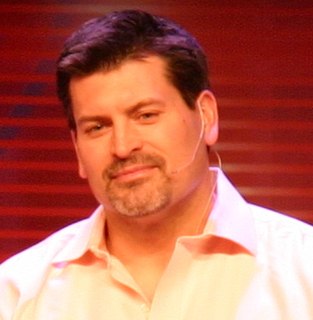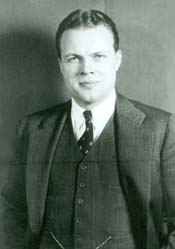A Quote by Peter Senge
How do you know what people value? Well, you watch what they buy. How do we know what products to create? Well, it's based on what they value.
Related Quotes
If in the human economy, a squash in the field is worth more than a bushel of soil, that does not mean that food is more valuable than soil; it means simply that we do not know how to value the soil. In its complexity and its potential longevity, the soil exceeds our comprehension; we do not know how to place a just market value on it, and we will never learn how. Its value is inestimable; we must value it, beyond whatever price we put on it, by respecting it.
When you look at what [new generation] believe in, how they value diversity, how they believe in science, how they care about the environment, how they believe in, you know, everybody getting a fair shot, how they believe in not discriminating against people for sexual orientation and you know, their belief that we have to work with other countries to create a more peaceful world and to alleviate poverty, that's the majority an entire generation that's coming up behind us.
It is not nearly so important how well a message is received as how well it is sent. You cannot take responsibility for how well another accepts your truth; you can only ensure how well it is communicated. And by how well, I don't mean merely how clearly; I mean how lovingly, how compassionately, how sensitively, how courageously, and how completely.
Most people don't realize how important librarians are. I ran across a book recently which suggested that the peace and prosperity of a culture was solely related to how many librarians it contained. Possibly a slight overstatement. But a culture that doesn't value its librarians doesn't value ideas and without ideas, well, where are we?
The tax incentives are things the music business can emulate. If I own Yesterday by the Beatles and I go to a bank and try to borrow $10,000 and use that song as collateral, they wouldn't know what to do. They would run me out of the bank. Whereas if we get specialized people who know how to appraise the value of intellectual property like songs, catalogs and master recordings, they know how to put some type of value on it. They have this in Nashville and Los Angeles. New Orleans is just starting to get it.
I think parenting well is not so different than trying to consider how to be successful at any relationship. Like, how do you partner well? How do you collaborate well? How do we have this conversation well? You know, you're always trying to figure out what "well" means, so I think parenting is another version of that.
Intentional living is the bridge to significance. At the end of every year, I take time out to reflect and evaluate the events of the previous year - what went well and what needed improvement. From that inventory, I lay out my next year - how I intend to live, make the best use of time and maximize adding value to others. Success asks, 'How can I add value to myself?' Significance asks, 'How can I add value to others?' It is your intention that lends itself to significance.




































